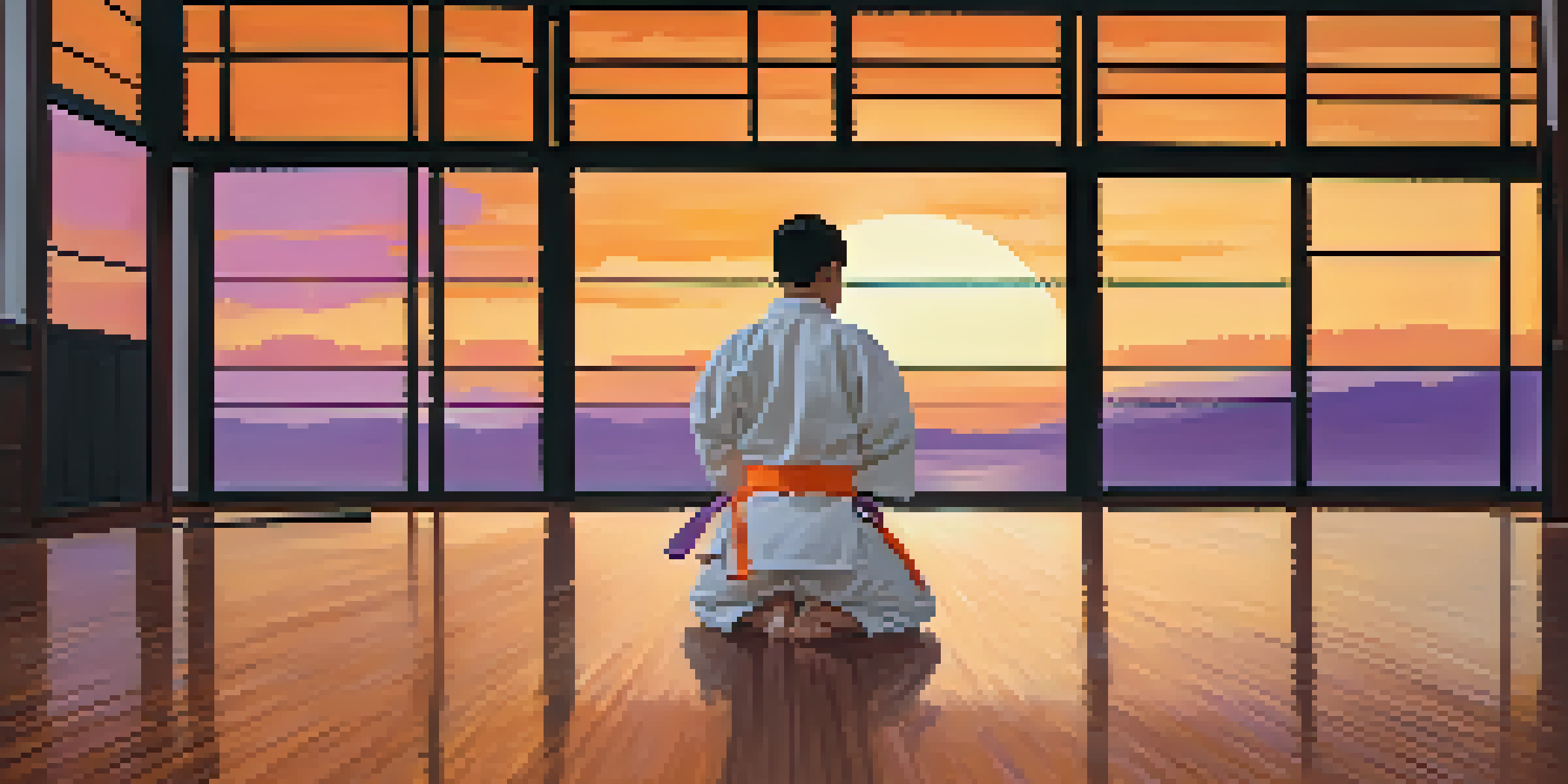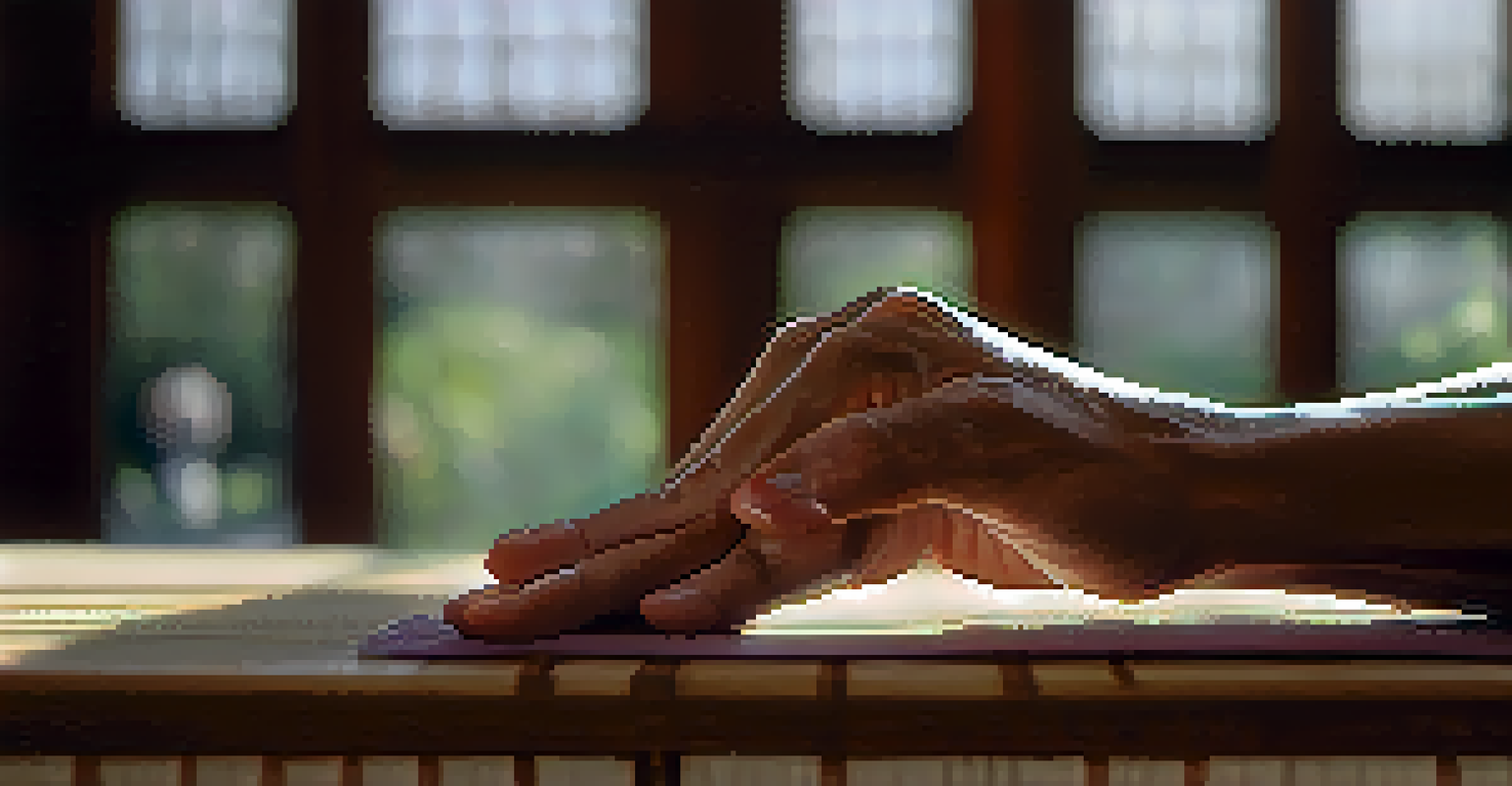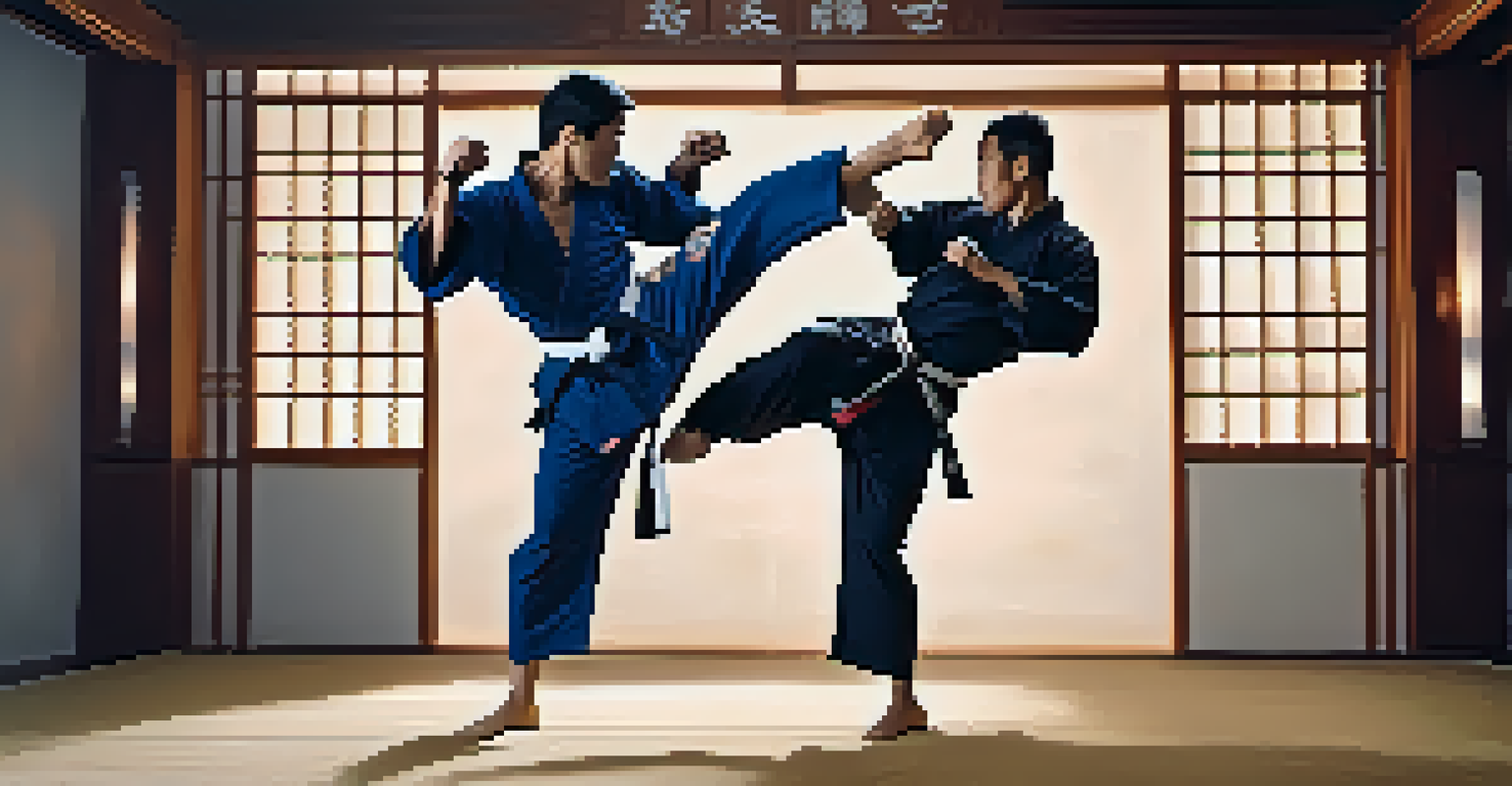Emotional Control in Martial Arts: A Key to Conflict Resolution

Understanding Emotional Control in Martial Arts
Emotional control is a fundamental aspect of martial arts training. It refers to the ability to manage your emotions, especially during high-pressure situations. For martial artists, this skill is crucial not only in combat but also in everyday life, as it enhances decision-making and self-discipline.
It's not the load that breaks you down, it's the way you carry it.
In martial arts, practitioners face various emotional triggers, such as fear, anger, or frustration. Learning to navigate these feelings allows them to remain calm and collected, which ultimately leads to better performance. Think of it as a conductor leading an orchestra, where each emotion is an instrument that needs harmony to create a masterpiece.
By practicing emotional control, martial artists can transform potentially volatile situations into opportunities for growth. This process not only improves their skills on the mat but also teaches valuable life lessons about patience and understanding.
The Role of Mindfulness in Emotional Regulation
Mindfulness plays a significant role in developing emotional control within martial arts. It involves being present in the moment and acknowledging one's emotions without judgment. This practice allows martial artists to recognize feelings as they arise, rather than letting them dictate their actions.

For instance, during sparring sessions, a practitioner may feel overwhelmed by anxiety. By using mindfulness techniques, they can pause, breathe, and assess their emotions instead of reacting impulsively. This moment of clarity can be the difference between victory and defeat.
Emotional Control Enhances Performance
Martial artists who master emotional control can navigate high-pressure situations effectively, improving both their combat skills and everyday decision-making.
Incorporating mindfulness into training not only enhances emotional regulation but also fosters resilience. Ultimately, martial artists learn to face challenges with a calm mindset, which is essential for effective conflict resolution outside the dojo.
Techniques for Developing Emotional Control
There are several techniques that martial artists can use to enhance their emotional control. Breathing exercises, visualization, and meditation are among the most effective methods. These practices help to center the mind and body, creating a calm state conducive to clear thinking.
The greatest weapon against stress is our ability to choose one thought over another.
For example, before a competition, a martial artist might visualize themselves executing techniques flawlessly while remaining composed. This mental rehearsal not only boosts confidence but also reinforces emotional stability, allowing them to stay focused during the match.
Moreover, consistent practice of these techniques fosters a sense of familiarity with emotional responses, making it easier to handle stress when it arises. Over time, martial artists develop a toolbox of strategies that empower them to navigate challenging situations both in and out of the dojo.
Emotional Control as a Conflict Resolution Tool
Emotional control is a powerful tool for conflict resolution, particularly in martial arts. When tensions rise, the ability to manage emotions can prevent situations from escalating. By staying calm and composed, martial artists can approach conflicts with a clear mind and a strategic perspective.
Consider a scenario where two practitioners have a disagreement during training. Instead of letting anger take over, the one with emotional control can facilitate a constructive dialogue, allowing both parties to express their views. This approach not only resolves the issue at hand but also strengthens relationships.
Mindfulness Supports Emotional Regulation
Incorporating mindfulness techniques helps martial artists recognize and manage their emotions, promoting a calm mindset during training and competition.
Ultimately, the lessons learned in martial arts extend beyond the dojo. Emotional control equips individuals with the skills needed to handle conflicts in everyday life, fostering a more peaceful and understanding environment.
The Impact of Emotional Control on Relationships
Emotional control not only affects personal performance but also significantly impacts relationships within the martial arts community. Practitioners who can manage their emotions tend to foster healthier interactions with peers and instructors. This dynamic creates a supportive environment where everyone can thrive.
For instance, a student who remains calm during challenging training sessions is more likely to encourage and uplift their fellow practitioners. This positive energy contributes to a culture of mutual respect, enhancing the overall experience for everyone involved.
Additionally, mastering emotional control can lead to lasting friendships built on trust and understanding. These relationships often extend beyond the dojo, providing a network of support in various aspects of life.
Challenges in Developing Emotional Control
While emotional control is a vital skill, it's important to recognize that developing it comes with challenges. Many practitioners may struggle with letting go of negative emotions, especially in competitive settings. This struggle can lead to frustration and hinder progress in both martial arts and personal growth.
For example, a martial artist might find it difficult to stay composed after an unexpected loss. Instead of viewing it as a learning opportunity, they may dwell on negative emotions, impacting their performance in future matches. Recognizing this cycle is the first step toward breaking it.
Emotional Control Fosters Stronger Relationships
Practicing emotional control not only enhances personal performance but also cultivates healthier interactions within the martial arts community.
Overcoming these challenges requires patience and dedication. By consistently practicing emotional regulation techniques, martial artists can gradually build resilience and learn to embrace setbacks as part of their journey.
Integrating Emotional Control into Daily Life
The skills learned in martial arts regarding emotional control can and should be integrated into daily life. Practitioners can apply the techniques of mindfulness, breathing exercises, and visualization to everyday situations, enhancing their overall well-being. This seamless integration allows for a more balanced and fulfilling life.
For instance, when faced with stressful situations at work or home, martial artists can draw upon their training to maintain composure. This ability to manage emotions translates to improved communication, better decision-making, and stronger relationships.

Ultimately, the journey of mastering emotional control in martial arts is just the beginning. As practitioners take these lessons into their daily lives, they not only enrich their own experiences but also positively influence those around them.